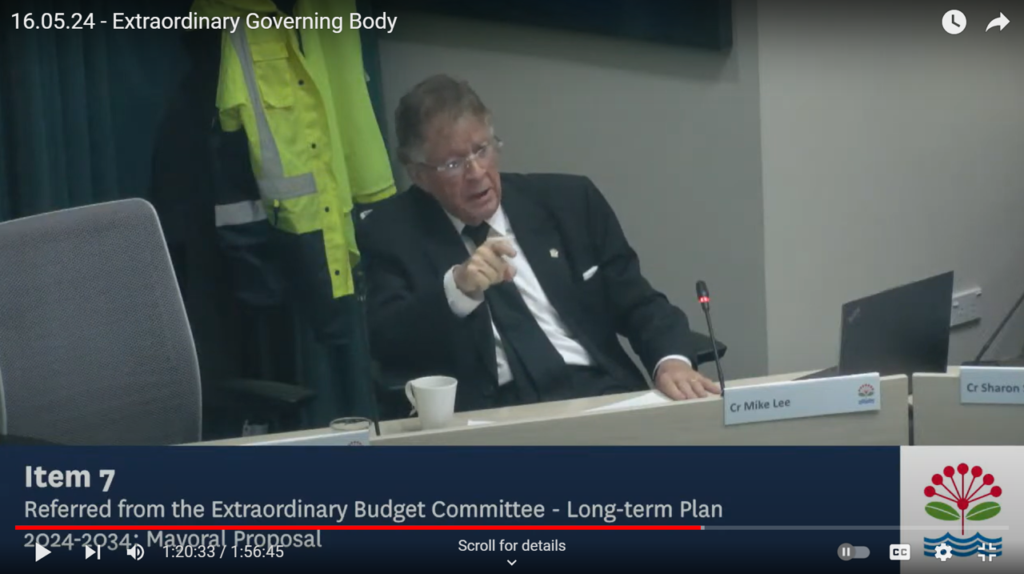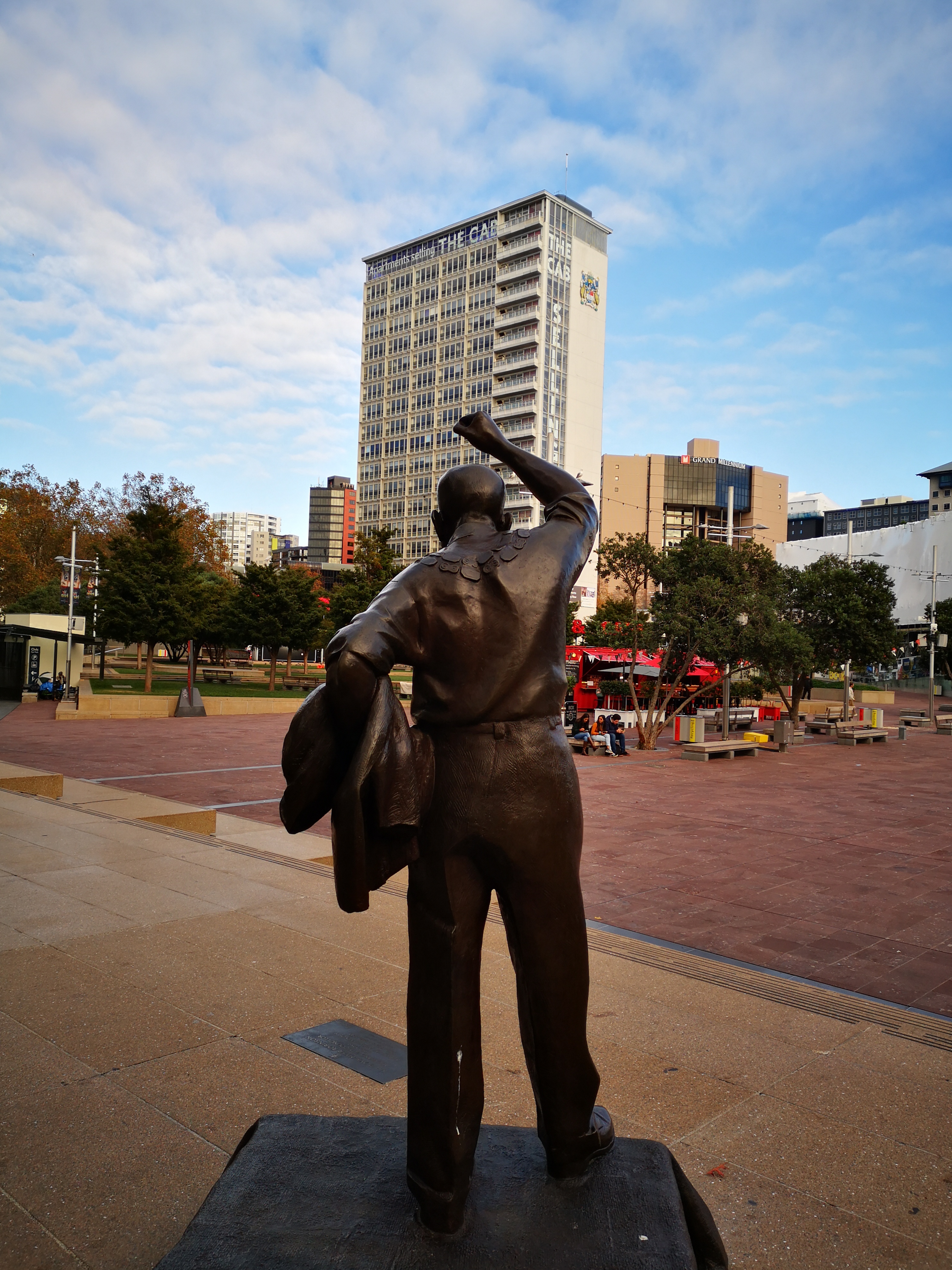Council’s Long term plan debate – Port saved, airport sold
The Council’s Long-Term Plan was approved after a long, difficult day on 16 May.

The author in full cry in a last ditch attempt to stop the sale of council’s legacy shares in Auckland International Airport,
The most significant elements of the 10-year plan were the sale of council’s remaining shares in Auckland International Airport (c$1 billion), and the long-term lease (in effect sale) of the Port of Auckland, (c$2 billion). Despite this attempted massive privatisation, the special consultative and decision-making procedures obligatory under the Local Government Act were effectively ignored. Instead public ‘consultation’ made much of the ‘choice’ of ‘Pay More – Get More’, or ‘Pay Less – Get Less’. This was all nonsense of course – most Aucklanders know the real outcome: ‘Pay More – Get Less’. If there was any doubt, council’s pre-emptive removal of hundreds of rubbish bins from public places proves the point. In terms of ‘Pay More’, the average rates increase this year will be 7.5%, next year 3.5% [election year – just sayin’], and the year after, 8%. As these are compounding figures, the impact on households will be significant. Mayor Brown’s promises to ‘fix’ Auckland Council, i.e. council’s systemic cost/procurement problems have not been fulfilled – nor even seriously attempted. Instead, he has championed a redux of Thatcherism / Rogernomics. The erstwhile Mr Fix is instead fixated – on asset sales. The good news is that his attempt to lease until 2060? Auckland’s strategically vital port to Dubai has been abandoned. This in part due to the remarkable turn-around in the port company’s fortunes, on track to earn ratepayers $1m a week, thanks to the leadership of CEO Roger Gray. Key to this has been the remarkable improvement in workplace relations with port workers, represented by the Maritime Union (MUNZ). The union’s campaign to remind certain Labour Party-aligned councillors that voting to alienate the port would be unhelpful for their future political ambitions, proved to be effective. It was the lack of numbers around the table, presaging a humiliating public defeat, that was decisive in forcing the mayor’s backdown.
The outcome for the airport shares was, in contrast, not so positive. As I predicted last year, when a majority of councillors, some of them betraying their election manifestos, were persuaded, in some cases with promises of preferment, to sell just under half the council’s shares, there was rather less scruples about selling the remainder this time round.
Last year we recall, the pretext for selling was to pay down debt. Despite the sale being worth $833m, embarrassingly this year the council debt is virtually same as it was last year. So this year the pretext had to be different, now it’s to create a so-called ‘Future Fund’. Given no-one ever asked the council for this; The council and its CCOs are hardly shining examples of competency in managing their basic responsibilities, (think public transport, think the Wynyard broken bridge), the whole scheme is deeply questionable. Auckland Council’s last ‘Future Fund’, the Diversified Fund Assets, inherited from the Auckland Regional Council, $350m in stocks, bonds was cashed up and spent by the council in 2017 – 2018. Interestingly certain council managers and councillors who argued in favour of looting the DFA, are now leading ‘Future Fund’ advocates.
As we did last year, Councillors Fuli, Filipaina, Watson, Walker, Bartley, Leonie and myself, with some support from Cr Turner, battled all day in a dogged rearguard action to stop the share sale. The mayor’s reassuring talk about seeking a law change to prevent a future council doing to the Future Fund what it did to the DFA turned out to be bluff, which I called with my amendment to delay establishing the Fund until parliament passed this legislation which was lost 13 to 8.
Sadly then, the shares in Auckland International Airport, a strategic and diversified blue-chip asset, with 1500 hectares of significantly undervalued land (due to a council rating decision), lucrative carpark buildings, shopping centre, warehouses, hotels and other infrastructure, will be cashed up and the proceeds spent in buying international stockmarket equities (with no doubt with the usual parasitic ticket clipping along the way). Given the increasingly unstable international situation, this is a singularly reckless decision. Once the shares and their dividends are gone, they’ll be gone forever. This is not only economically irresponsible but quite tragic because our airport was built by visionary Aucklander leaders; its wealth was meant to be handed down to benefit future generations of Aucklanders who will be now disinherited.
This article was published in the June 2024 issue of Ponsonsby News.



